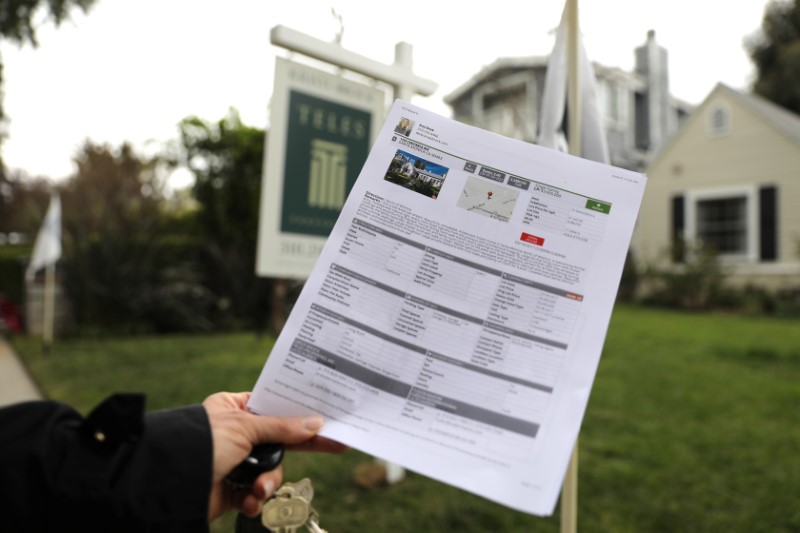By Hari Kishan
BENGALURU (Reuters) - U.S. house prices are forecast to rise by a cumulative 10 percent over this year and next, driven by a scarcity of new homes, low interest rates and steadily-increasing demand, a Reuters poll of property market analysts showed.
Over three-quarters of the experts surveyed Aug. 17-30 also said the U.S. home ownership rate, which a year ago was languishing at a four-decade low, will climb over the next two years.
The survey results suggest the steady recovery from a housing market crisis that first started about a decade ago - when homes lost almost a third of their value and unemployment surged - is expected to continue.
The latest poll coincides with a series of weak housing data releases. U.S. home resales and starts fell in July to their lowest levels in nearly a year on a chronic shortage of properties even as home borrowing costs are down broadly.
But the cooling in housing turnover reflects supply bottlenecks rather than falling demand.
"The recent drop in mortgage interest rates has not boosted housing market activity, which is being constrained by a severe lack of inventory," said Matthew Pointon, property economist at Capital Economics.
"With housing starts faltering, we doubt inventory levels will improve much this year, so home sales will see little growth. Instead, prices are set to be driven up."
The S&P/Case Shiller composite index of prices in 20 metropolitan areas is forecast to rise at more than double the rate of inflation and wage growth this year, by 5.7 percent, followed by 4.3 percent next year.
Those median forecasts were slightly up from a Reuters poll three months ago. The range of forecasts also showed a shift up from a poll in May, with higher highs and higher lows.
While U.S. house prices have regained all of their losses from the financial crisis and the unemployment rate has fallen to a 16-year low, housing inventory is still at just half of where it was at its peak in 2007, at the start of the crisis.
Housing inventory has now dropped for 26 straight months on a year-over-year basis, pushing house prices up. The monthly median house price has risen for almost 5-1/2 years and the latest data show it was up 6.2 percent in July compared with a year ago.
Existing home sales are forecast to average a seasonally adjusted annual rate of 5.60 million units until the second half of next year, according to the poll, more than a 20 percent drop from the peaks of 2005, suggesting housing shortages are here to stay.
HOME OWNERSHIP ON THE RISE
But with a couple of hundred thousand or so jobs still being added to the economy each month along with extremely low interest rates, building companies are likely to continue constructing homes to capture that solid demand.
Indeed, expectations now are for the home ownership rate to go higher over the next two years.
The home ownership rate, which measures the total number of homes owned by their occupants, hit a 40-year low of 62.9 percent last year. It has since crept up slowly to 63.7 percent, but is still a long way from reaching its recent peak.
"Gradual loosening of credit along with gradually increasing confidence in the housing market will push homeownership rates higher, although nothing close to the 69 percent seen in 2004 during the last housing market up-cycle," said Daren Blomquist, senior vice president at ATTOM Data Solutions, an online property data website.
Rising house prices remain an obstacle for first-time buyers, however, particularly those who are saddled with huge amounts of student debt.
"Affordability is now at its lowest point of the year and it is happening with sales weakening. That seems to imply that prices are becoming a problem," said Robert Brusca, chief economist at FAO Economics.
Asked to rate affordability of U.S. housing on a scale of 1 being the cheapest and 10 the most expensive, the median answer was 6. That has not changed in more than a year of polling.

(Polling by Vivek Kumar Mishra and Sujith Pai; Editing by Ross Finley and Paul Simao)